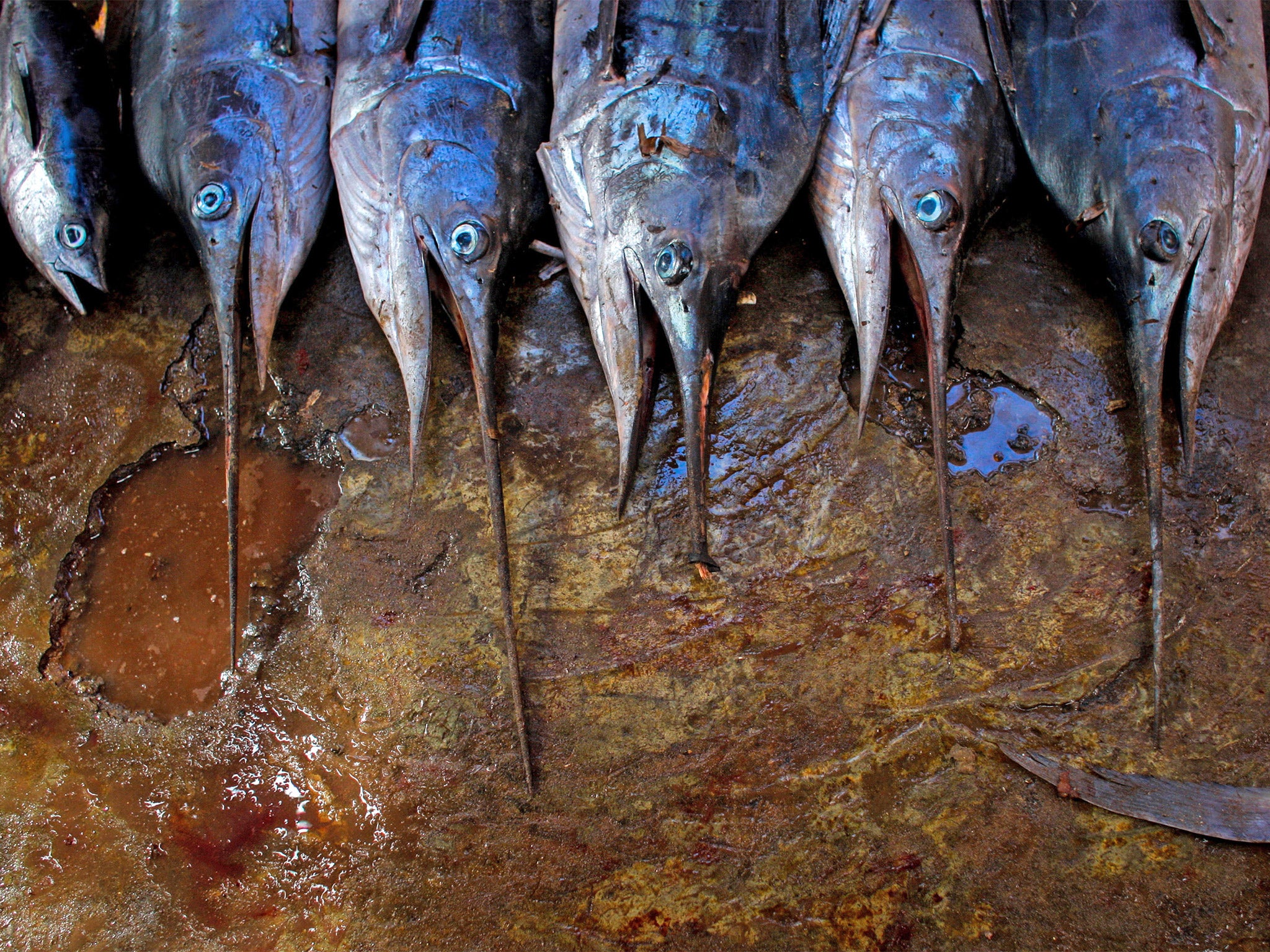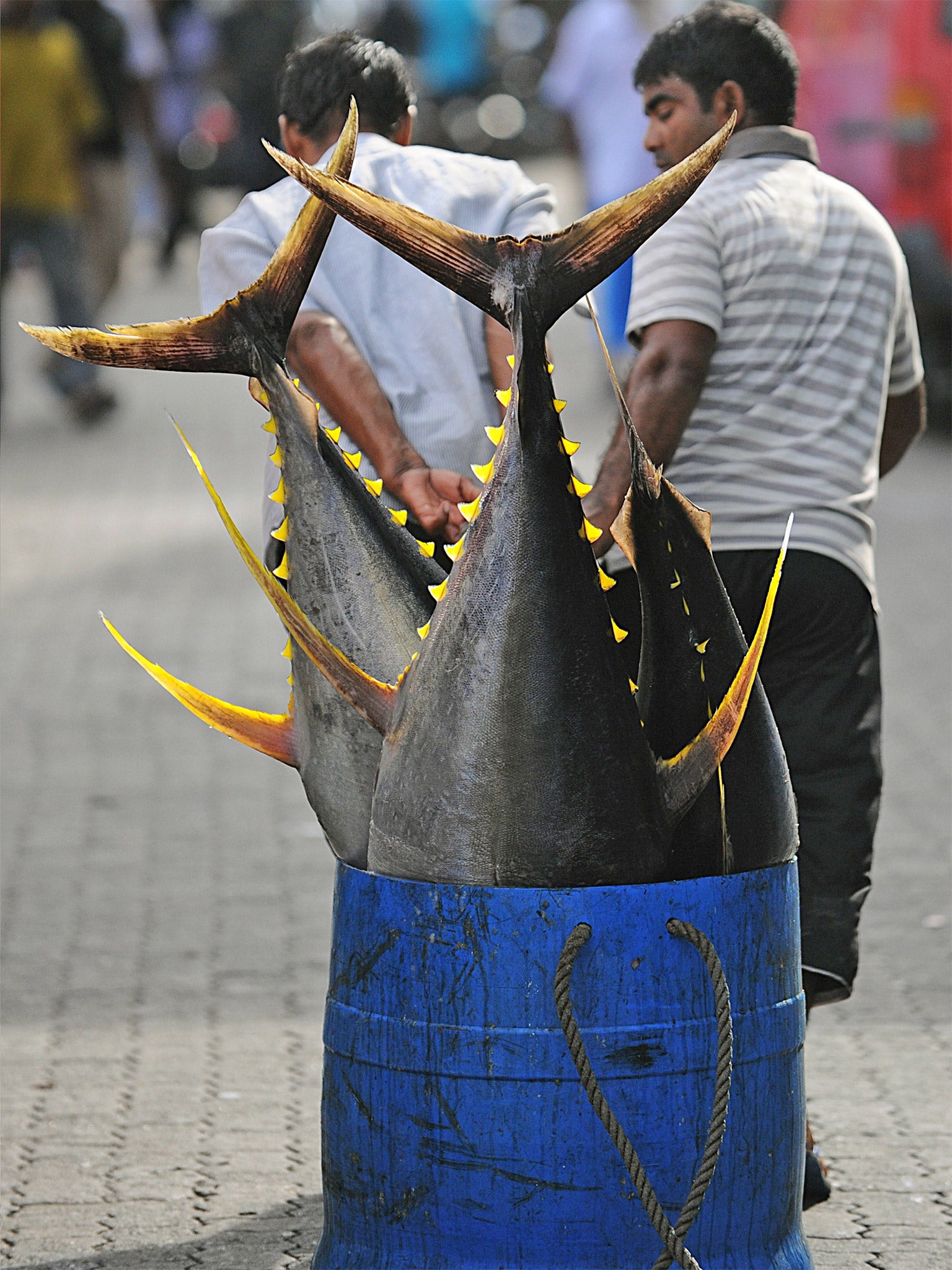Small ocean fish are thriving while humans eat up all their predators
Major study shows impact of overfishing on sensitive marine ecosystems

Your support helps us to tell the story
From reproductive rights to climate change to Big Tech, The Independent is on the ground when the story is developing. Whether it's investigating the financials of Elon Musk's pro-Trump PAC or producing our latest documentary, 'The A Word', which shines a light on the American women fighting for reproductive rights, we know how important it is to parse out the facts from the messaging.
At such a critical moment in US history, we need reporters on the ground. Your donation allows us to keep sending journalists to speak to both sides of the story.
The Independent is trusted by Americans across the entire political spectrum. And unlike many other quality news outlets, we choose not to lock Americans out of our reporting and analysis with paywalls. We believe quality journalism should be available to everyone, paid for by those who can afford it.
Your support makes all the difference.Little fish have never had it so good, according to research showing how mankind’s taste for big fish such as tuna and shark is allowing the anchovy and sardine to flourish.
Industrialised fishing practices are causing a revolution in the world’s oceans, with numbers of predator fish - which also include swordfish, grouper, North Atlantic cod and salmon - tumbling by 54 per cent in the past four decades. These fish sit at the top of the food chain and are more popular with humans than the smaller species because people find them tastier. Their volume – by weight - has fallen by 67 per cent in the past century, a University of British Columbia study has found.
But the drastic reduction in big fish in recent decades is great news for the smaller prey fish such as pilchards, herrings, sprats and caplin because it has significantly increased their chances of survival. The decline in predators has shored up supplies of once dwindling small fish - including anchovies and sardines - for decades to come.
The volume by weight of smaller fish has more than doubled in the past century. The biggest increases are to be found in those fish that are less popular with humans, such as sticklebacks and Gobies, the research found. Over the same period, the volume of predators fell by 67 per cent.
Despite the flourish small fish populations, scientists are concerned. “This should be a warning bell for the rest of the world. We are still fishing way too much,” said Professor Villy Christensen, lead author of the research paper. “Predators are important for maintaining healthy ecosystems."

Changes in the ocean’s fish population are not only having an impact on individual species but is upsetting the balance of nature by disrupting the entire functioning of its ecosystem, he said.
The meteoric rise of herbivorous sea urchins as their predators such as sea otters have declined is one example of how the changes are undermining ecosystems. The sea urchins destroy the forests of kelp seaweed that host numerous species such as crabs and jellyfish.
The change also raises the risk of algae blooms, which can choke the oceans. This is because the species such as sardines and herring feed on the animal plankton that normally eats the plant plankton, which then grows so much it gets out of control. Examples of the “green soup” which these vast blooms of algae create can be found around the world, for example in the Black Sea, Professor Christensen said.

The researchers came up with their estimates after analysing 200 different food chains involving a total of 3,000 ocean species. They published their paper, "A Century of Fish Biomass in the Ocean", in this month’s edition of the journal Marine Ecology Progress Series.
The results further underline that many species of economically and ecologically important predatory fish are being vastly overfished. It finds that the situation is beginning to improve in some regions, such as the US, thanks to better fisheries management – but says the situation remains dire in much of the developing world.
“The main problem is really the developing world where we need more effective institutions for fisheries management. We need to get effective management introduced in all countries, or it will have dire consequences,” said Professor Christensen.

Click HERE to view full-size version of graphic
The European Commission and the Institute of Marine Science in Barcelona were among the other contributors to the University of British Columbia’s research.
Sinkers and swimmers: how different species are faring
On the decrease
Tuna: Giant bluefin tuna is a favourite with Japanese chefs and fashionable London restaurants. About 80 per cent of the global Blue-fin catch is consumed in Japan.
Shark: Sharks in general are declining because of over-fishing, though great white sharks have increased in numbers since the US banned hunting them 1997.
Swordfish: Swordfish have become such a popular dish that numbers are now 70 per cent lower than what is considered sustainable. Last week, the marine conservation charity accused the European Union of “blatantly ignoring” its obligation to manage swordfish levels.
Grouper: The Nassau grouper is the most-at-risk species after a 60 per cent decline in its global population in the past three decades. It is found from Bermuda and Florida throughout the Bahamas and Caribbean Sea.
On the increase
Anchovies: Numbers have exploded everywhere between the North Sea and the Bay of Biscay. Part of the reason is the decline of predators, but ocean warming is thought to have made conditions more favourable in areas such as the North Sea.
Sardines: Sardine populations are soaring thanks to a combination of fewer predators and better fish management in parts of the developing world. However, they are damaging algae blooms and Professor Christensen urges people to eat more sardines and fewer “predator” fish.
Fish in figures
130% increase of smaller ‘prey’ fish in total volume (by weight) in the past century
67% decrease of big ‘predator’ fish in past century
Join our commenting forum
Join thought-provoking conversations, follow other Independent readers and see their replies
Comments